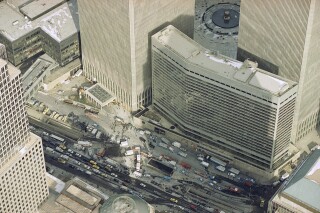
Today in History:
On Feb. 26, 1993, a truck bomb built by Islamic extremists exploded in the parking garage of the North Tower of New York’s World Trade Center, killing six people and injuring more than 1,000 others. (The bomb failed to topple the North Tower into the South Tower, as the terrorists had hoped; both structures were destroyed in the 9/11 attack eight years later.)
On this date:
In 1815, Napoleon Bonaparte escaped from exile on the Island of Elba and headed back to France in a bid to regain power.
In 1904, the United States and Panama proclaimed a treaty under which the U.S. agreed to undertake efforts to build a ship canal across the Panama isthmus.
In 1942, “How Green Was My Valley” won the Academy Award for Best Picture of 1941, beating out nine other films, including “The Maltese Falcon” and “Citizen Kane.”
In 1945, authorities ordered a midnight curfew at nightclubs, bars and other places of entertainment across the nation.
In 1952, Prime Minister Winston Churchill announced that Britain had developed its own atomic bomb.
In 1966, South Korean troops sent to fight in the Vietnam War massacred at least 380 civilians in Go Dai hamlet.
In 1987, the Tower Commission, which had probed the Iran-Contra affair, issued its report, which rebuked President Ronald Reagan for failing to control his national security staff.
In 1998, a jury in Amarillo, Texas, rejected an $11 million lawsuit brought by Texas cattlemen who blamed Oprah Winfrey’s talk show for a price fall after a segment on food safety that included a discussion about mad cow disease.
In 2005, Egyptian President Hosni Mubarak ordered his country’s constitution changed to allow presidential challengers in an upcoming fall election.
In 2012, Trayvon Martin, 17, was shot to death in Sanford, Florida, during an altercation with neighborhood watch volunteer George Zimmerman, who said he acted in self-defense. (Zimmerman was later acquitted of second-degree murder.)










